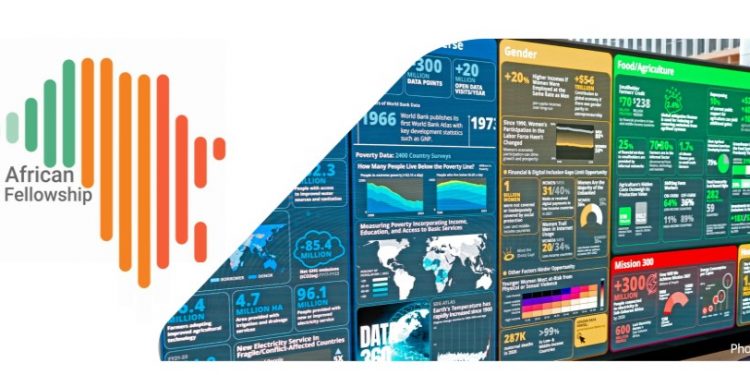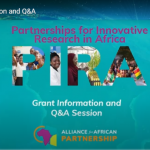The United Nations African Policy Innovation Fellowship seeks to foster a generation of policymakers who are well-versed in policy analysis and implementation and deeply committed to advancing the values of inclusivity, transparency, and accountability. Through collaborative learning, mentorship, and exposure to global best practices, the Fellowship aims to cultivate a cadre of African policymakers who will champion sustainable development and peacebuilding efforts in their respective countries and beyond. This vision is rooted in the belief that investing in Africa’s human capital sows the seeds for a more prosperous and equitable tomorrow.
Through a structured, multi-phase model, the fellowship enables junior and mid-level government officials to develop and implement data-driven, contextually grounded policy solutions aligned with national priorities.
Structure: The fellowship employs a structured, three-phase programme that combines conceptual training, policy design, and applied implementation support. It aims to equip participating policymakers with the analytical and operational capacities to design data-driven, fiscally grounded, and context-responsive policy interventions aligned with national development priorities and institutional mandates. Fellows are expected to complete the programme in its entirety, submitting all required documents for each of the three phases, and failure to do so may result in the termination of the fellowship.
Fellowship Application Process: Prospective fellows must submit a project proposal as part of a competitive selection process. Proposals shall address a national-level policy challenge related to one of the six transitions. The proposal should:
- Incorporate a data inventory outlining available sources and data gaps.
- Demonstrate how national data will be leveraged to develop an actionable policy framework.
- Include a strong financing component linked to domestic resource mobilization, fiscal policy coherence, or innovative financing mechanisms (e.g., carbon markets, remittances, SDG-aligned bonds).
- Proposals must be submitted using the template provided – submissions in any other format will not be considered.
Eligibility Requirements: Please refer to the Fellowship Terms of Reference for the full details on eligibility requirements.
- Applicants are expected to be current junior to mid-level civil servants in their home countries engaged in key ministries such as finance and planning, energy, agriculture, education, and homeland security.
- Applicants must have demonstrated work experience in research/analytical work in socio-economic and political development, trade and investment, natural resource management/law, regional integration, infrastructure development, including transportation, logistics, energy, governance, peace, and related areas in the context of Africa.
- The fellowship programme is focused on policy research and analysis. Thus, applicants are expected to have strong analytical, research, data, communication, and interpersonal skills.
- Applicants must have an advanced university degree (Master’s or doctorate, or their equivalents) linked to the area of specialization contained in their project proposals. A first-level university degree in combination with two years of relevant work experience may be considered in lieu of an advanced degree.
- The maximum age limit is 40 years at the time of application.
- Applicants must submit a supervisor’s endorsement letter confirming support and releasing the fellow for the in-person phase (see the sample letter on this page).
- English and French are the working languages of the United Nations Secretariat. Fluency in either language is required for the fellowship, and working knowledge of the other is an advantage.
Logistical Information:
- Subject to satisfactory completion of the initial phase of the Fellowship and the issuance of an appropriate visa by the host country, an in-person component at UN Headquarters in New York is foreseen.
- During this phase, Fellows will be supported with a return air ticket, a monthly stipend, and medical cover, subject to UN regulations.
- Note that the stipend is intended to support fellows in covering the costs of lodging, board and other essentials and is not intended as a salary or honorarium, or to support fellows’ expenses in their home countries.
- Payment of the final monthly stipend is subject to the submission of all required documents for this phase of the fellowship.
Call for applications:
The 2025 Fellowship application period is open and closes at midnight New York time on 20 June 2025. Submissions after this time will not be considered.
Please familiarize yourself with the information below before submitting your application. The selection process may include a competency-based interview and a written assessment.
- The 2025 edition will run from July to December 2025, and fellows will need to ensure that they can participate in the entire programme:
- July: Online virtual conceptualisation phase from the fellow’s home country.
- August-October: Policy development phase in-person at UN HQ New York.
- November-December: Implementation preparation phase in collaboration with the UN Resident Coordinator’s Office in the fellow’s home country.
- Please submit your application, consisting of the following documents via the application form
- A one-page resume (curriculum vitae)
- The signed supervisor’s endorsement letter
- Your completed project proposal
Contact: All queries regarding the fellowship can be submitted to: osaa-fellowship@un.org
Get more details and application link HERE










